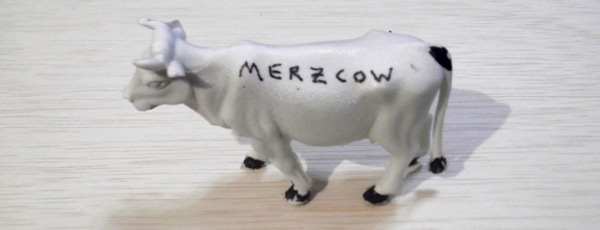Intro:
MERZ as prism.
#
This is not intended as a typical contemporary instruction manual that so often has to be presented along a work of art, and music even. It's strange how one has to "read" an artwork. It surely says something about the power of words. Are we able to "hear" the book? Well, a book of poetry perhaps? Taste or smell a coffee table book?
I for one usually start with a gut feeling, an experience that make a piece of art or music appeal to me. Then I start chasing the links and gather what can be "read" as post-articulation, then the work start growing on me. Feel free to "write" this off as ignorance, but without that first kick - that love by first sight, I quickly move along to the next piece that has that quality.
#
To me, a visual piece of art must breathe poetry, as the musical piece must have pulse. It's not like we're short of artistic expressions. The established art world might at times seem to suffer from a drought, or a lack of new words, newspeak.
#
Putting forward a statement like "I only like a painting where I can see what is supposed to look like" sounds stupid, but what if I can see that it looks like an abstract painterly play between colours and shapes?
#
Something vs It
To
repeat something is to recreate it as a readymade. A loop perhaps. To
recycle something is to reframe it as a notalreadymade. A spiral perhaps.
#
"The
people no longer seek consolation in art. But the refined people, the
rich, the idlers seek the new, the extraordinary, the extravagant, the
scandalous. I have contented these people with all the many bizarre
things that come into my head. And the less they understand, the more
they admire it. By amusing myself with all these games, all this nonsense,
all these picture puzzles, I became famous ... I am only a public entertainer
who has understood his time." - Pablo Picasso
#
"You can apply a blob of paint, turn the brush in one way or the other, and that will produce a different effect each time which will change the whole meaning of the image" - Francis Bacon
#
From Art Brut to Annex Collection/Neuve Invention, art by people with more contact with cultural art, amateurs that after a while tried to make a living.
#
"What country doesn't have its small sector of cultural art, its brigade of career intellectuals? It's obligatory. From one capital to another they perfectly ape one another, practising an artificial, esperanto art, which is indefatigably recopied everywhere. But can we really call this art? Does it have anything to do with art?" - J. Dubuffet in L'Art brut prÈfÈre aux arts culturels, catalogue 1948
#
"Those works created from solitude and from pure and authentic creative impulses - where the worries of competition, acclaim and social promotion do not interfere - are, because of these very facts, more precious than the productions of professionals." - J. Dubuffet, catalogue 1967
#
"set language platform: [open] - we don't need to invent a new language, or erase esperantic attempts, aware of both wheel and microchip, history is what WAS, prima materia for all that IS and will BE"
#
"don't worry; perfection leaves nothing to be desired | abstract poetic expression IS basic human urge"
#
all parts equal part of the poem (transmedia desire)
John Maizels: "Raw Creation - Outsider Art and Beyond", Phaidon 1966/2000
Collections:
Art Brut collection, Lausanne, a temple dedicated to the spirit of true human expression.
MusÈe d'Art Brut, L'Aracine, Neuilly-sur-Marne, Paris. Now at the MusÈe d'Art moderne, Lille.
